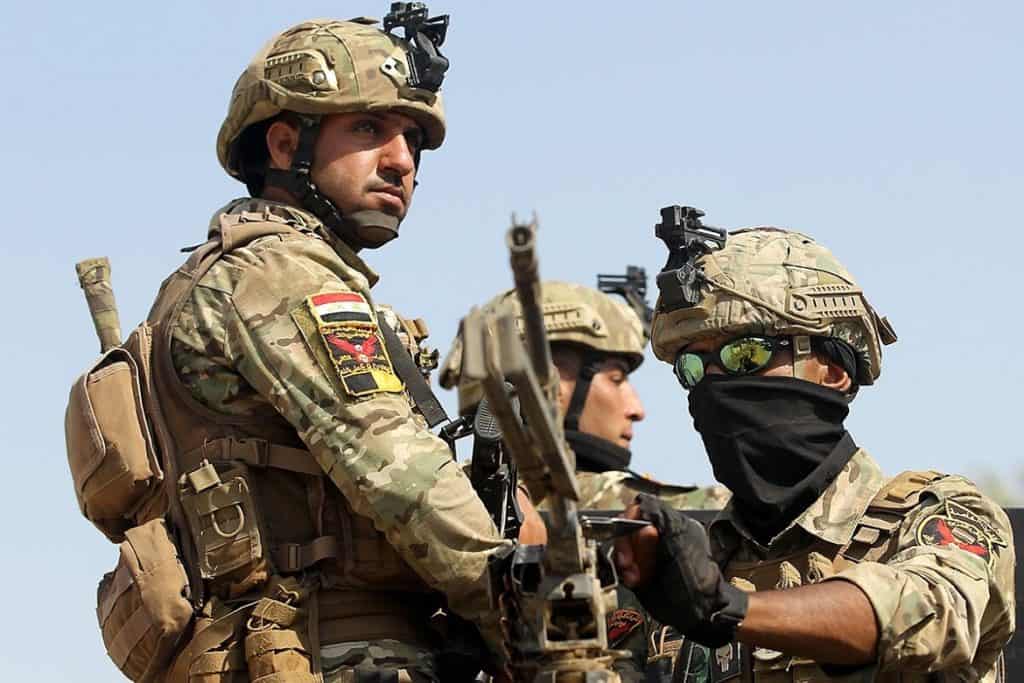By Denis Korkodinov
Among the social unrest Iraq faced, strengthening the country’s national security system has become paramount. The Iraqi army and the state’s special services are forced to respond to the changing conditions caused by the economic crisis and the COVID-19 pandemic.
Restoring the prestige of the normal Iraqi armed forces has become the main goal of the head of government, Mustafa al-Kazemi. The first executive decision of the official Prime Minister of Baghdad was linked to the reform of the regular army, the special services and the Ministry of Defense, which became a serious signal for the Iraqi militia and the Hezbollah brigades, which were actually recognized at the state level as illegal armed groups.
The goal of the reforms was, after many years of losing the credibility of Iraqi security agencies, turning them into a powerful state-run coercion and control apparatus. Such an ambitious plan has met with fierce criticism from the leaders of “Hashd al-Shaabi” and “Kataib Hizbullah”, who have seen a serious threat in the Mustafa al-Kazemi initiative.
The greatest resonance in Iraqi society was caused by the return of General Abdel Wahab al-Saadi, known for his lack of scruples in the fight against Islamic State militants, to a place in the state anti-terrorism agency, which he had previously left on the initiative of former cabinet chief Adele Abdul-Mahdi.
In addition, Brigadier General Yahya Rasul has restored his former positions as deputy commander in chief, replacing Major General Abdul Karim Khalaf. Public protests over the reshuffle of personnel in the Iraqi police force were primarily caused by the fact that Abdel Wahab al-Saadi and Yahya Rasul are not linked to the popular militia and are also irreconcilable opponents of Hashd al-Shaabi. , which is less significant, strengthens the authority of the Iraqi army.
It is worth noting that, since the overthrow of Saddam Hussein’s regime in 2003, Iraq’s armed forces have rapidly degraded due to widespread corruption. As a result, many unnecessary branches, divisions and organizations appeared in the Iraqi army that actually did nothing, but spent a lot of money on maintaining them. In addition, so-called “fusion officers” – command-level military personnel who formally did not belong to any military branch and did not perform any military duties, but received monthly salaries, became quite common.
The mortification of the Iraqi armed forces was one of the reasons why ISIS fighters managed to occupy almost 2/3 of the country’s territory in 2014, which was one of the tragic manifestations of the “Arab spring” in the Middle East. Certainly, in this context, various armed groups, which have been guarantors of the security of the country’s religious shrines and administrative structures, have become particularly popular in Iraq. This is how the Iraqi militia units appeared, which quite often came into conflict with the regular army.
This state of affairs could not continue for long and required drastic changes. For this reason, the new Iraqi Prime Minister, Mustafa al-Qazemi, has made strengthening the Iraqi security service a priority in his policy. Hashd al-Shaabi has become the main rival of the Iraqi army. In addition, many members of the Iraqi armed forces have been directly linked to the popular supplement and have received funding from there, which has created a serious security problem for the state as the army has become dependent on the leaders of Hashd al-Shaabi.
Mustafa al-Kazemi’s environment began to accuse the popular militia of excessive commitment and fulfillment of Tehran’s instructions, while Baghdad was interested in ensuring that all the armed forces operating in Iraq had a central command and reported directly to the commander of the country. In addition, during the army reform, the Prime Minister removed some pressure on Iraq from the United States, which has long sought to abolish Iraqi militias and break the link between Baghdad and Tehran.
(The opinions expressed in this article are solely those of the author and do not necessarily reflect the views of World Geostrategic Insights)
Image Credit: Ahmad al-Rubaye/AFP/ Getty Images







